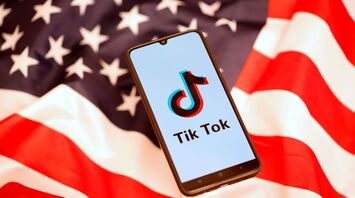TikTok Claims US Ban Impacts Free Speech

TikTok faced a legal challenge on Monday, asserting that a proposed US law could severely infringe on the free speech rights of its 170 million users in the country. This legislation requires TikTok to be sold by ByteDance to avoid a ban. Concerns over Chinese government access to US user data prompted this move.
The companies, TikTok and ByteDance, filed a lawsuit in early May to prevent the law, labeling it unconstitutional. In an appeals court session in Washington, DC, lawyer Andrew Pincus remarked, "This law poses extraordinary speech prohibitions based on uncertain future threats." He emphasized that ByteDance, not Chinese authorities, owns TikTok.
Ownership and Control Debate
The debate about ownership surfaced, with Pincus highlighting that ByteDance Limited is based in the Cayman Islands, distancing TikTok from Chinese control. However, Judge Sri Srinivasan noted the potential for Chinese oversight. Pincus countered that the US government had not demonstrated any wrongdoing, suggesting the law punishes TikTok for speculative future concerns.
Judge Ginsberg mentioned that the legislation targets control over the company itself, not TikTok as an entity. Consequently, Ginsberg pointed out that the law affects companies deemed foreign adversaries rather than just TikTok.
Constitutional Implications for Creators
Jeffrey Fisher, representing creators, argued that the law would restrict their constitutional rights. It could limit their ability to collaborate with a platform like TikTok if ownership changes. Tiffany Cianci, a TikTok creator, livestreamed updates outside the courthouse and noted significant viewer interest, saying, "The American people care about this issue."
She expressed skepticism about the security claims related to the law, stating that, if TikTok was risky, politicians would not use it during the election cycle. This reflects growing public concern over potential losses of access to the platform.
Technical Aspects of the Debate
While TikTok asserts that its platform operates on technology developed in the US, Department of Justice lawyer Daniel Tenny countered this by stating, "The recommendation engine originates from ByteDance." He clarified that this means the content is largely a product of Chinese engineers.
Fisher contended that user-generated posts should be considered American speech, moderated by a foreign company. Concerns also arise over potential manipulation by the Chinese government regarding content distribution on the app. Advocates for free speech warn that supporting the divest-or-ban law could empower other authoritarian regimes to impose similar restrictions on their citizens.
Potential Outcomes and Future Implications
According to James Lewis from the Center for Strategic and International Studies, the legislation is designed to endure judicial review. He noted, "The case against TikTok is robust." The central question will focus on whether obligating divestiture translates to regulation of speech. Historically, courts have leaned toward presidential judgment in matters of national security.
Experts predict a lengthy legal battle, regardless of the appeals court ruling. Cornell Law School Professor Gautam Hans stated the government's authority to regulate national security issues must remain unchallenged. He warned that TikTok's situation is crucial; the platform cannot continue without remaining under ByteDance.
Forrester's Mike Proulx highlighted the "high stakes" surrounding this case, indicating it could escalate to the Supreme Court, marking a significant moment for both TikTok and broader free speech rights in the US.
Earlier, SSP told how to keep laptop battery healthy: tips for both MacBook and Windows users.



















